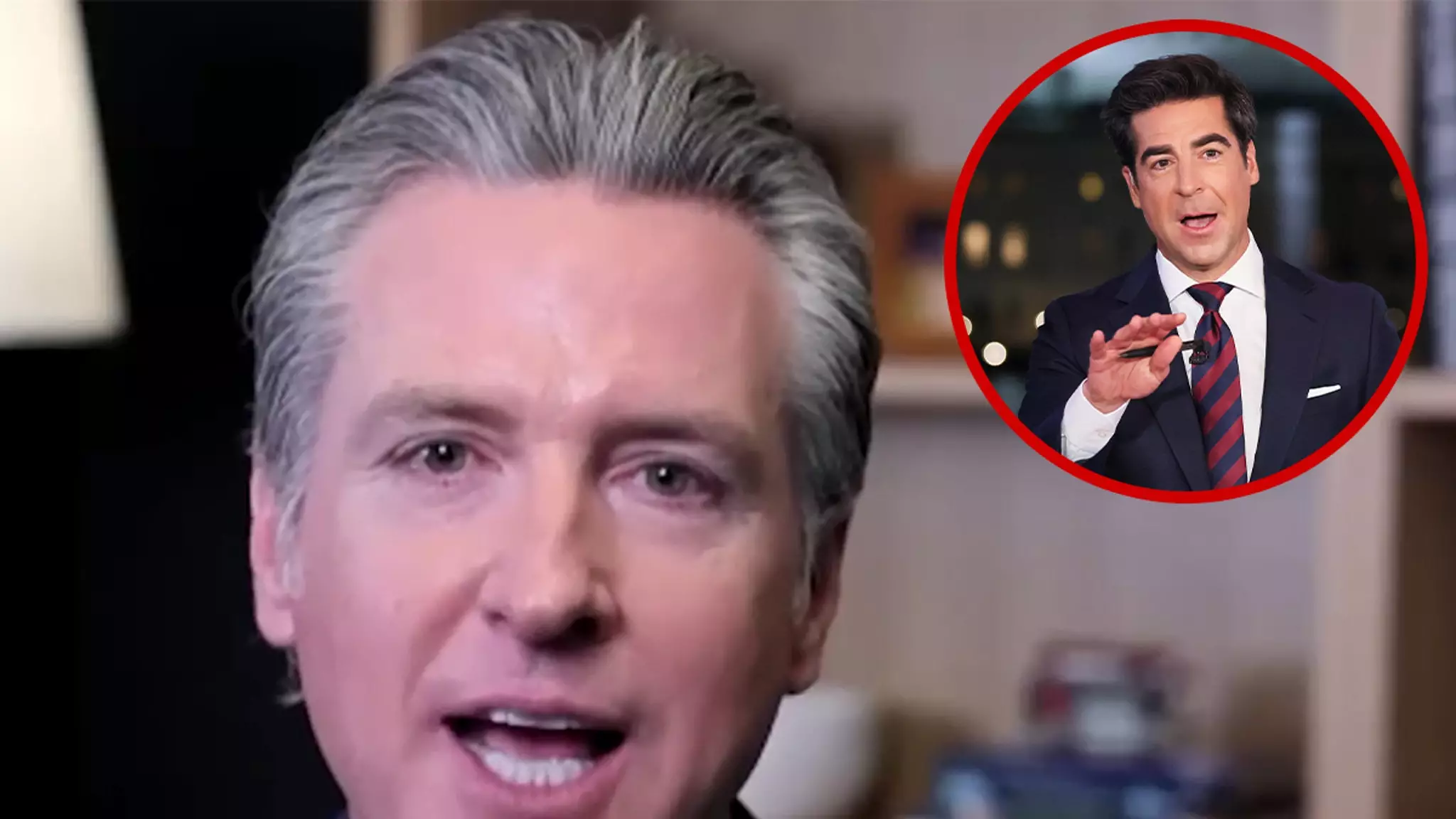In recent times, the struggle for truthful reporting has become a focal point in American politics, and the escalating conflict between California Governor Gavin Newsom and Fox News exemplifies this tension vividly. Newsom’s lawsuit against Fox News is not merely a legal skirmish but rather a symbolic confrontation with what he calls a “propaganda network” that, in his view, prioritizes partisan narratives over journalistic integrity. This clash highlights a broader challenge: media outlets veering away from objective reporting and instead amplifying misinformation to serve political interests.
The governor’s accusations are rooted in Fox’s broadcast of a deceptive story that accused him of lying about a phone call with former President Trump. Newsom insists he never spoke to Trump “a day ago,” contrary to claims made during an Oval Office interview. The network’s portrayal, especially by host Jesse Watters, reportedly involved edited footage that skewed the facts in a misleading way. The result is a potent mix of defamation and public deception, which Newsom believes must be legally challenged to hold powerful media accountable.
The Legal Battlefield: Beyond Free Speech
Fox News argues that Newsom’s lawsuit is a frivolous attempt to stifle free speech, framing it as a “publicity stunt” designed to intimidate critics. This defense leans heavily on First Amendment protections, an important principle in American democracy. However, the distinction between free speech and knowingly spreading falsehoods is crucial. The precedent set by Fox’s $787 million settlement with Dominion Voting Systems casts a long shadow over their current defense. That enormous payout underscored that spreading demonstrably false information carries consequences, especially when it damages reputations and sows public confusion.
Newsom’s approach is strategic: he is open to dropping the lawsuit if Fox airs a public apology admitting the deception. This goal reveals a preference for accountability and public rectification rather than just legal victory. Still, if Fox refuses, Newsom is prepared to pursue the matter aggressively in court, signaling that the governor sees this as a battle for truth with high stakes, not just for him personally but for the media environment at large.
The Broader Implications for Political Discourse
This conflict reveals troubling dynamics in contemporary political and media landscapes. When news organizations abandon impartiality and become conduits for political propaganda, the casualty is public trust. Newsom’s willingness to confront a powerful media giant underscores the necessity for political figures to push back against misinformation that can distort democratic processes and public perception.
Yet, the lawsuit also raises questions about whether legal battles are the right tool to counteract biased reporting. Litigation risks further politicizing news coverage and drawing out public disputes in polarized arenas. While Newsom’s determination is commendable for seeking accountability, it also reflects the deep fractures in news media and politics—where truth becomes a contested battleground rather than a shared value.
An Uneasy Future for Accountability Journalism
Ultimately, the Newsom-Fox conflict is emblematic of the urgent need for a media ecosystem that equally values accuracy and free speech. If major outlets continue using distorted narratives for political gain, lawsuits may become more common, but they cannot singlehandedly restore public faith. Instead, a recommitment to rigorous editorial standards and transparent conduct is needed to rebuild journalism’s role as a reliable informant to the public, rather than a participant in partisan propaganda wars. Governance, media, and the public alike must grapple with these challenges to foster a healthier democratic dialogue.

